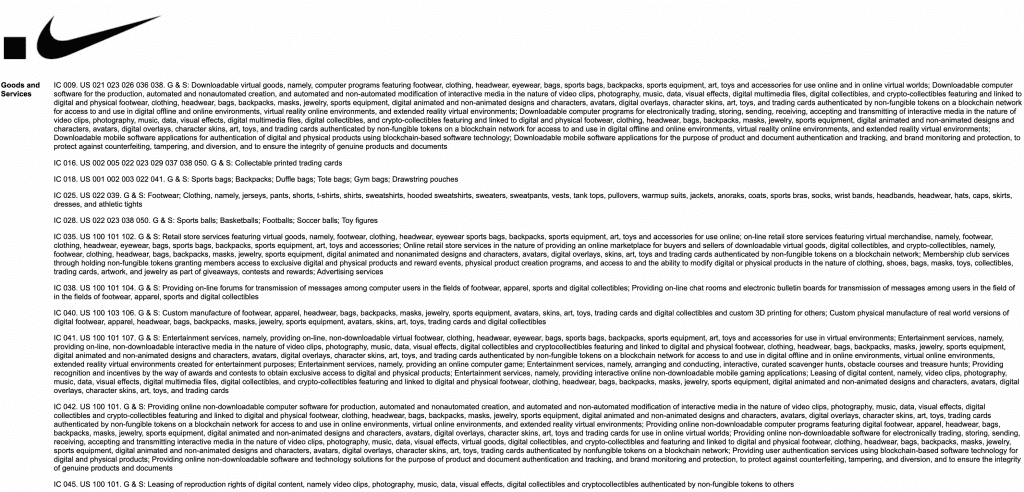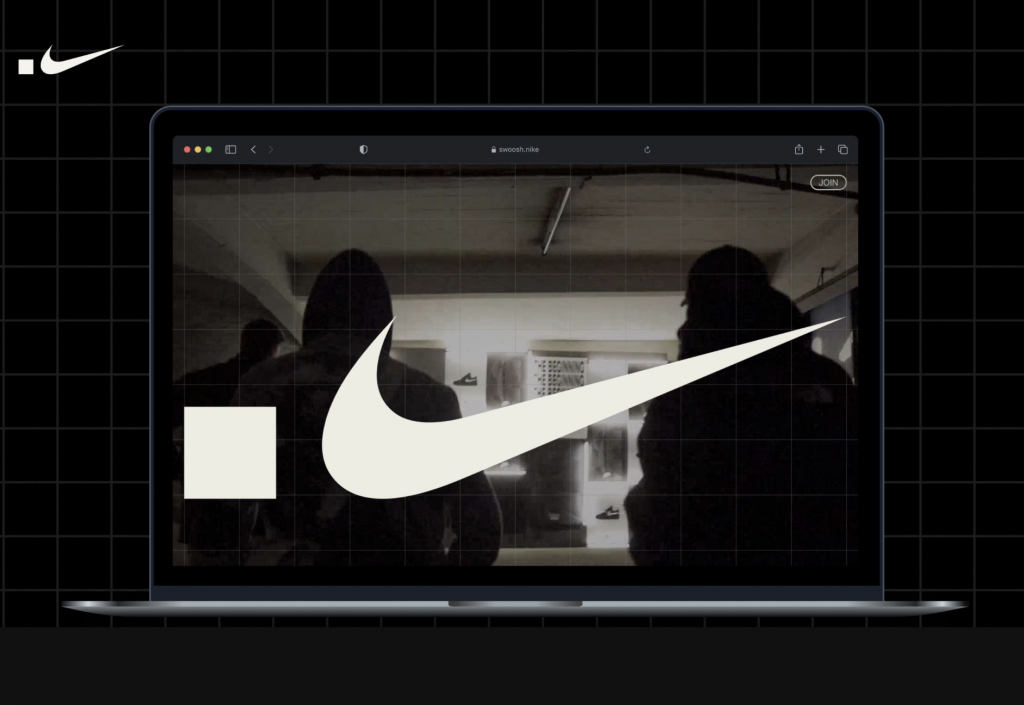Nike’s latest web3 venture is here. Taking the form of a web3-enabled platform, .Swoosh is aiming to enable consumers to “learn about, collect and eventually help co-create virtual creations, which are typically interactive digital objects, such as virtual shoes or jerseys,” the Beaverton, Oregon-based company announced on Monday. Currently in beta mode, the platform will ultimately serve as a place “where our community can come in and co-create [the] future with us,” Ron Faris, GM of Nike Virtual Studios, said in a statement. “You can collect, trade, and flex Nike virtual products. You can go to IRL events with your token-gated virtual creations.”
Nike says that it will grow the platform by inviting in “a diverse, equitable community, then launch its first digital collection – shaped by its members – [beginning] in 2023.” Shortly after the first digital collection drops, “Members will be able to enter a community challenge to win the opportunity to co-create virtual product with Nike, [with] those winners [able] earn a royalty on the virtual product they help co-create.”
The point of the venture, according to Nike? “To expand the definition of sport – and serve its future – by democratizing the web3 experience so that everyone can collect, create and own a piece of this new digital world.” Faris notes, “We are shaping a marketplace of the future with an accessible platform for the web3-curious. In this new space, the .SWOOSH community and Nike can create, share, and benefit together.”
The announcement comes after Nike has continued to position itself at the forefront of the budding web3 universe. On the heels of first partnering with gaming platform Roblox back in the 2019 and also receiving a utility patent from the U.S. Patent and Trademark Office for a “system and method for providing cryptographically secured digital assets” that same year, the sportswear titan hinted at future ambitions in this space by way of filed an array of intent-to-use applications in October 2021 for its most famous trademarks – word marks “Nike,” “Just Do It,” “Jordan,” and “Air Jordan,” its iconic swoosh logo, the Jordan silhouette logo, and a stylized combination of its name and the swoosh – for use on various virtual goods/services, kicking off a frenzy of similar filings by brands across industries.

Since then, Nike, Inc. acquired RTFKT, “a leading brand that leverages cutting edge innovation to deliver next generation collectibles that merge culture and gaming,” in December 2021 in furtherance of what Nike President and CEO John Donahoe said was “another step that accelerates Nike’s digital transformation.”
As for its actual output in the web3 front, Nike, landed in the top spot on a list of large brands that are generating revenue from non-fungible tokens (“NFTs”). According to data from Dune Analytics, which sheds light on the primary sales revenues, secondary transactions, and royalties associated with some of the early-moving brands participating in the NFT space, as of this summer, Nike had generated a total of $185.31 million in revenue from its NFT collections, namely, those from RTFKT. In addition to primary revenue, Nike boasts big number in terms of primary sales revenue ($93.1 million) secondary transactions (67.4k), secondary volume ($1.29 billion), and total royalties ($92.21 million).
In conjunction with the announcement, counsel for Nike filed a trio of intent-to-use trademark applications for registration for “.Swoosh”, “DOTSWOOSH”, and a stylized version of the swoosh logo with the U.S. Patent and Trademark Office for use in Classes 9, 16, 18, 25, 28, 38, 40, 41, 42, and 45.

THE BIGGER PICTURE: Nike is not the only big-name-company looking to experiment with web3. The innovation arm of Gucci, Balenciaga, Bottega Veneta, and Saint Laurent owner Kering recently launched a web3 project of its own called KNXT, which it calls “the first platform to offer a secure online luxury shopping experience designed specifically for cryptocurrencies users” and to “leverage the power of [blockchain and fashion] to offer a next-gen experience of luxury fashion shopping.”
Specifically, KNXT is angling to give consumers the opportunity to “buy high-end products from prestigious luxury houses with cryptocurrencies” by processing payments through Bitpay. As of now, the brands whose wares are available by way of KNXT include Kering-owned companies, such as Gucci, Bottega Veneta, and Alexander McQueen, as well as brands that do not fall under the Kering umbrella like Giambattista Valli and Courrèges.











